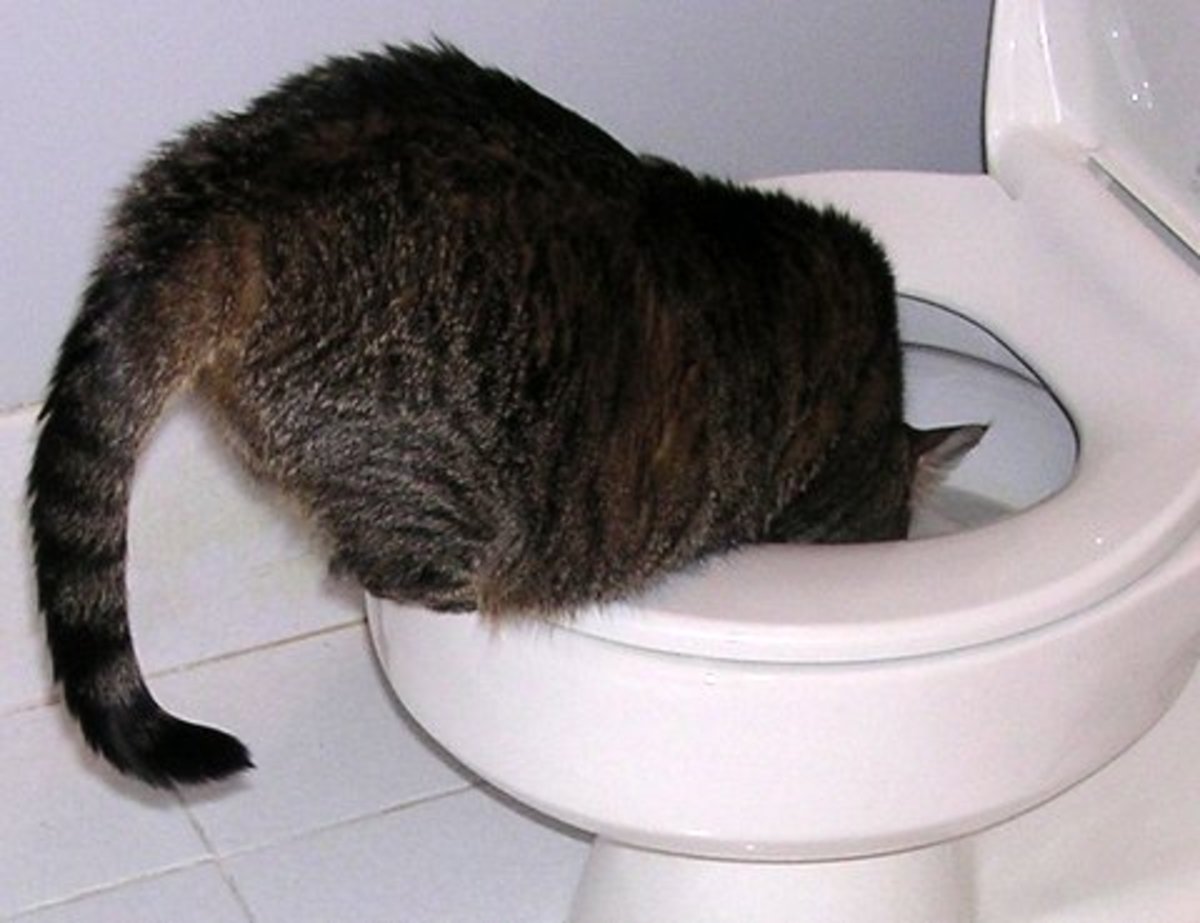Why You Mustn't Flush Cat Poop Down Your Toilet - Maintain Your Plumbing Health
Why You Mustn't Flush Cat Poop Down Your Toilet - Maintain Your Plumbing Health
Blog Article
Just how do you feel with regards to How to Dispose of Cat Poop and Litter Without Plastic Bags?

Intro
As feline owners, it's necessary to be mindful of how we dispose of our feline friends' waste. While it might appear convenient to flush feline poop down the bathroom, this technique can have detrimental repercussions for both the environment and human wellness.
Alternatives to Flushing
The good news is, there are safer and more responsible methods to dispose of pet cat poop. Take into consideration the following options:
1. Scoop and Dispose in Trash
The most common approach of disposing of feline poop is to scoop it right into an eco-friendly bag and toss it in the trash. Make sure to use a committed clutter scoop and get rid of the waste without delay.
2. Use Biodegradable Litter
Opt for naturally degradable feline litter made from materials such as corn or wheat. These clutters are environmentally friendly and can be safely thrown away in the garbage.
3. Hide in the Yard
If you have a yard, take into consideration burying feline waste in a marked area far from veggie yards and water sources. Be sure to dig deep enough to stop contamination of groundwater.
4. Install a Pet Waste Disposal System
Invest in a pet dog garbage disposal system particularly created for cat waste. These systems make use of enzymes to break down the waste, decreasing smell and environmental impact.
Health Risks
In addition to environmental issues, purging pet cat waste can likewise position health and wellness threats to humans. Pet cat feces might include Toxoplasma gondii, a bloodsucker that can trigger toxoplasmosis-- a potentially extreme illness, specifically for expectant ladies and individuals with damaged body immune systems.
Ecological Impact
Purging cat poop presents harmful virus and bloodsuckers right into the water, posing a significant threat to marine communities. These impurities can negatively impact marine life and concession water quality.
Conclusion
Liable family pet possession prolongs beyond giving food and shelter-- it additionally involves correct waste administration. By avoiding flushing pet cat poop down the bathroom and choosing alternate disposal methods, we can decrease our ecological impact and shield human wellness.
Why You Should Never Flush Cat Poop Down the Toilet
A rose by any other name might smell as sweet, but not all poop is created equal. Toilets, and our sewage systems, are designed for human excrement, not animal waste. It might seem like it couldn’t hurt to toss cat feces into the loo, but it’s not a good idea to flush cat poop in the toilet.
First and foremost, assuming your cat uses a litter box, any waste is going to have litter on it. And even the smallest amount of litter can wreak havoc on plumbing.
Over time, small amounts build up, filling up your septic system. Most litter sold today is clumping; it is made from a type of clay that hardens when it gets wet. Ever tried to scrape old clumps from the bottom of a litter box? You know just how cement-hard it can get!
Now imagine just a small clump of that stuck in your pipes. A simple de-clogger like Drano isn’t going to cut it. And that means it’s going to cost you big time to fix it.
Parasitic Contamination
Believe it or not, your healthy kitty may be harboring a nasty parasite. Only cats excrete Toxoplasma in their feces. Yet it rarely causes serious health issues in the cats that are infected. Most people will be fine too if infected. Only pregnant women and people with compromised immune systems are at risk. (If you’ve ever heard how women who are expecting are excused from litter cleaning duty, Toxoplasma is why.)
But other animals may have a problem if infected with the parasite. And human water treatment systems aren’t designed to handle it. As a result, the systems don’t remove the parasite before discharging wastewater into local waterways. Fish, shellfish, and other marine life — otters in particular — are susceptible to toxoplasma. If exposed, most will end up with brain damage and many will die.
Depending on the species of fish, they may end up on someone’s fish hook and, ultimately on someone’s dinner plate. If that someone has a chronic illness, they’re at risk.
Skip the Toilet Training
We know there are folks out there who like to toilet train their cats. And we give them props, it takes a lot of work. But thanks to the toxoplasma, it’s not a good idea.

Do you enjoy reading about How to Dispose of Cat Poop and Litter Without Plastic Bags? Try to leave a remark down the page. We'd be glad to see your opinion about this piece. We hope that you visit us again soon. Sharing is caring. Helping others is fun. Many thanks for going through it.
Click Here Report this page